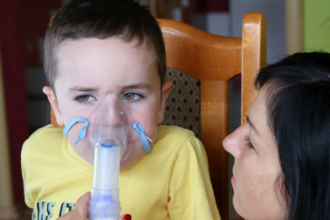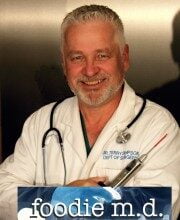For most of our patients, the Student Run Homeless Clinic is the last stop in a long, fruitless search for healthcare in the city of New Orleans. Recently, an insulin-dependent diabetic came in who had his insulin pump stolen, an unfortunate side-effect of homelessness. The physician prescribed a 150 dollar-per-month supply of insulin—far out of our price range—not knowing how much insulin costs. This was in addition to a sixty-dollar albuterol inhaler for his COPD and lisinopril-HCTZ for hypertension.
For most of our patients, the Student Run Homeless Clinic is the last stop in a long, fruitless search for healthcare in the city of New Orleans. Recently, an insulin-dependent diabetic came in who had his insulin pump stolen, an unfortunate side-effect of homelessness. The physician prescribed a 150 dollar-per-month supply of insulin—far out of our price range—not knowing how much insulin costs. This was in addition to a sixty-dollar albuterol inhaler for his COPD and lisinopril-HCTZ for hypertension. As the pharmacy director, I was placed in the unusual position of vetoing the prescription. How do I explain our inability to prescribe medicines to a patient who acutely needs them? Or explain our limitations to a doctor who rarely thinks about them? How do I justify not treating a patient to my own conscience?
I took the patient aside, and we tried to work through his options. We explored and applied for patient assistance programs that pharmaceutical companies run for disadvantaged patients. But for a patient who had neither a permanent address nor a phone, the paperwork proved complex. He doubted he would hear back from them. I referred him to the two other homeless clinics around the city, but I knew that funding for those had dried up so remarkably during the recession that they probably closed down or denied new patients. Even if they offered his insulin, one of the clinics was not on a bus route so he had no way of getting there. Finally, I made a referral to the public hospital. For a non-referred patient, the hospital is so overwhelmingly crowded that an appointment can take up to three months. Even using our accelerated referral process, the next available appointment with primary care was in a six weeks. It was a frustrating and disheartening experience to find that every avenue was so clogged with administrative red-tape that it was unlikely he would receive help in the near future. Much to my chagrin, we still could not write him a prescription for his insulin. After meeting with him, it became obvious why so many homeless individuals are caught in a crippling cycle between the Emergency Department and vagrancy.
I remain optimistic because at the clinic, we make the best of our situation. With an average annual budget of 25,000 dollars, mostly through private donations, we have over 700 patient visits in a given year. We do this using volunteer physicians and students, an approach based empiric-therapy and a fast-track referral system into the public hospital for complex or very sick patients. But for many, we manage chronic conditions with simple measures. We have an in-house dispensary, for which we purchase commonly prescribed generics in bulk—antibiotics, allergy medicines, diuretics, and NSAIDs, among many others. We also have an account at a local pharmacy, where patients can fill out reasonably price prescriptions for free. For the vast majority of patients, we can come up with a treatment plan that accounts for the short- and long-term management of disease with frugality.
But patients such as these have forced me to think deeply about medicine in a way that seems to contradict my medical training. We are taught that our number one priority is as our patient’s advocate. On the other hand, as the pharmacy director, I am forced to constantly consider that one expensive patient can prevent us from treating a dozen others. Patients thank us for our work every clinic, but for those whom we can’t accommodate, I am left wondering what else is there to do?
image: homeless/shutterstock









